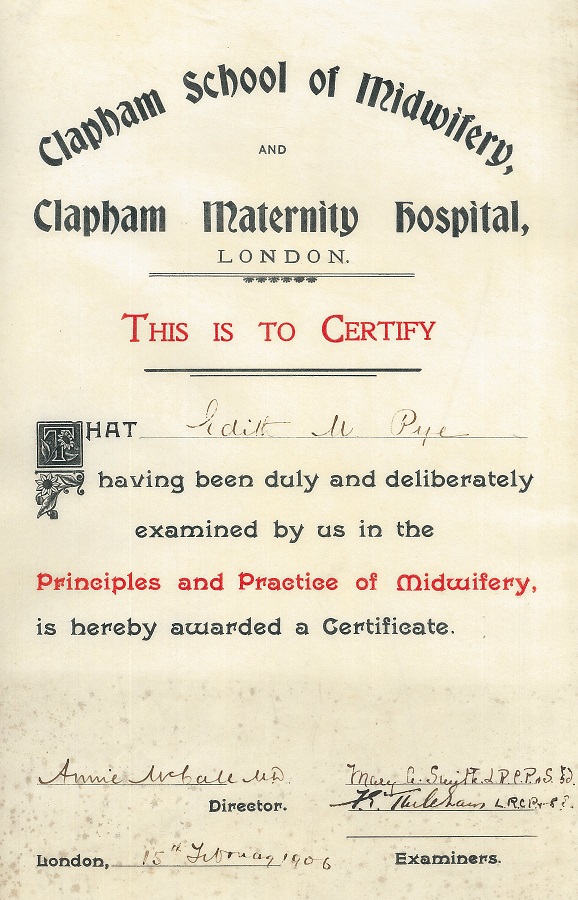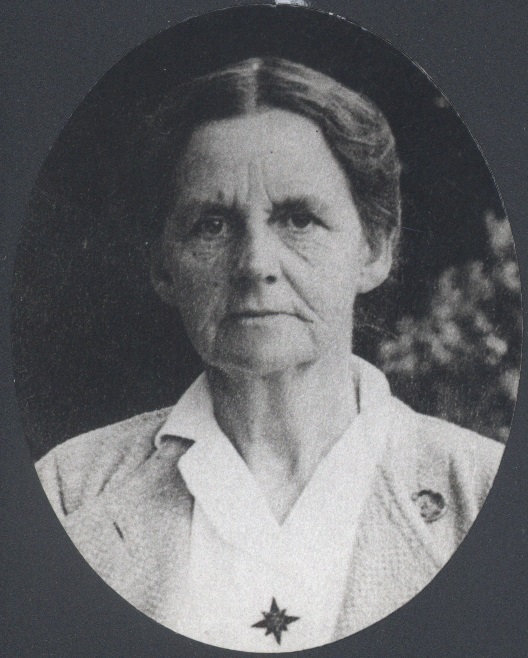This International Women’s Day we recognise the heroic efforts of Edith Pye, midwife, Quaker, humanitarian and International Relief Organizer.
Edith Mary Pye was one of the earliest certified midwives, having qualified in 1906 at Clapham School of Midwifery, and she served as President of the Royal College of Midwives between 1928 and 1949. But it was her experience providing humanitarian relief in Europe during two World Wars that shaped her career and her impact on international midwifery.

She was born on October 20th 1876 in London, the daughter of a wine merchant, and trained as a nurse at the David Lewis Northern Hospital. She became Central Superintendent of the Ranyard District Nurses in London in 1907 and joined the Society of Friends in 1908, becoming matron of the Friend’s Maternity Hospital for Refugees at Charlons-sur-Marne. During the First World War over 1000 babies were born under her care.
With her lifelong friend physician and aid worker Dr Hilda Clark (1881–1955), Pye organized the Friends War Victim Relief in December 1914 at Chalons-sur-Marne. The two women organized a maternity hospital inside the war zone during the First World War and helped women and children war victims in France. She also supported the lifting of the allied blockade in Europe, which would allow food and medical supplies to be sent to starving populations in Europe. For these efforts, Pye was one of the few women at the time to be awarded the Legion d’Honneur, France’s highest honour. The City of Rheims also presented her with a medal for her services to mothers and babies in France.
In 1919 Edith travelled to Vienna with the Friend’s Relief Mission where she spent two years with Hilda Clark organising the feeding of refugee children. With the outbreak of the Spanish Civil War, Edith co-ordinated the work of the Friends in Spain and worked with the International Commission for the Assistance of Child Refuges and the Women’s International League for Peace and Freedom to provide humanitarian relief to mothers and children.
In 1923, she travelled to China to carry out relief work in association with the Women’s International League. She was a leading member of the Famine Relief Committee and she lobbied the Ministry of Economic Warfare. Edith was a prolific campaigner for a peace and had a strong internationalist perspective having seen the devastating effect of war across multiple countries. In an address to the RCM in 1944 she said:
“It is my firm belief that in the re-forming of international groups of people who have a mutual knowledge and understanding of one set of deep human problems, such as those midwives deal with, we have the most potent curative agent for the post-war ailments of hatred, suspicion, resentment and humiliation, which cannot but be very widespread in Europe, indeed, in the world.”
In 1929 Edith Pye became the President of the Royal College of Midwives (formally known as the Midwives Institute), which was a post she occupied for twenty years. During her presidency she saw the formation of the Joint Council of Midwifery, the passing of the Midwives Act of 1936 and the introduction of the National Health Service. Between 1934 and 1936 Edith Pye was accorded the additional honour of being made president of the International Confederation of Midwives and she was awarded an OBE in 1943.

Her election as RCM President coincided with the founding of the British College of Obstetricians and Gynaecologists (later the Royal College of Obstetricians and Gynaecologists). Collaboration between the Colleges during the 1920s and 1930s had its ups and downs. In 1936 Edith was deeply troubled by a report issued by the BCOG investigating the use of analgesics suitable for administration by midwives during labour. The report recommended that midwives should only be permitted to use gas and air apparatus for relief of pain during normal childbirth, and that chloroform should only be administered by obstetricians and doctors. During her time in office Edith was a major supporter of the use of chloroform capsules by midwives, which enabled midwives to administer pain relief to women in childbirth in their own homes. She felt that any restriction would greatly inhibit the efforts of midwives to help mothers.
Edith Pye retired to Somerset with Hilda Clark in 1952. She died on 16th December 1965, ten years after Hilda, and the two are buried in the Quaker burial-ground under the same headstone.